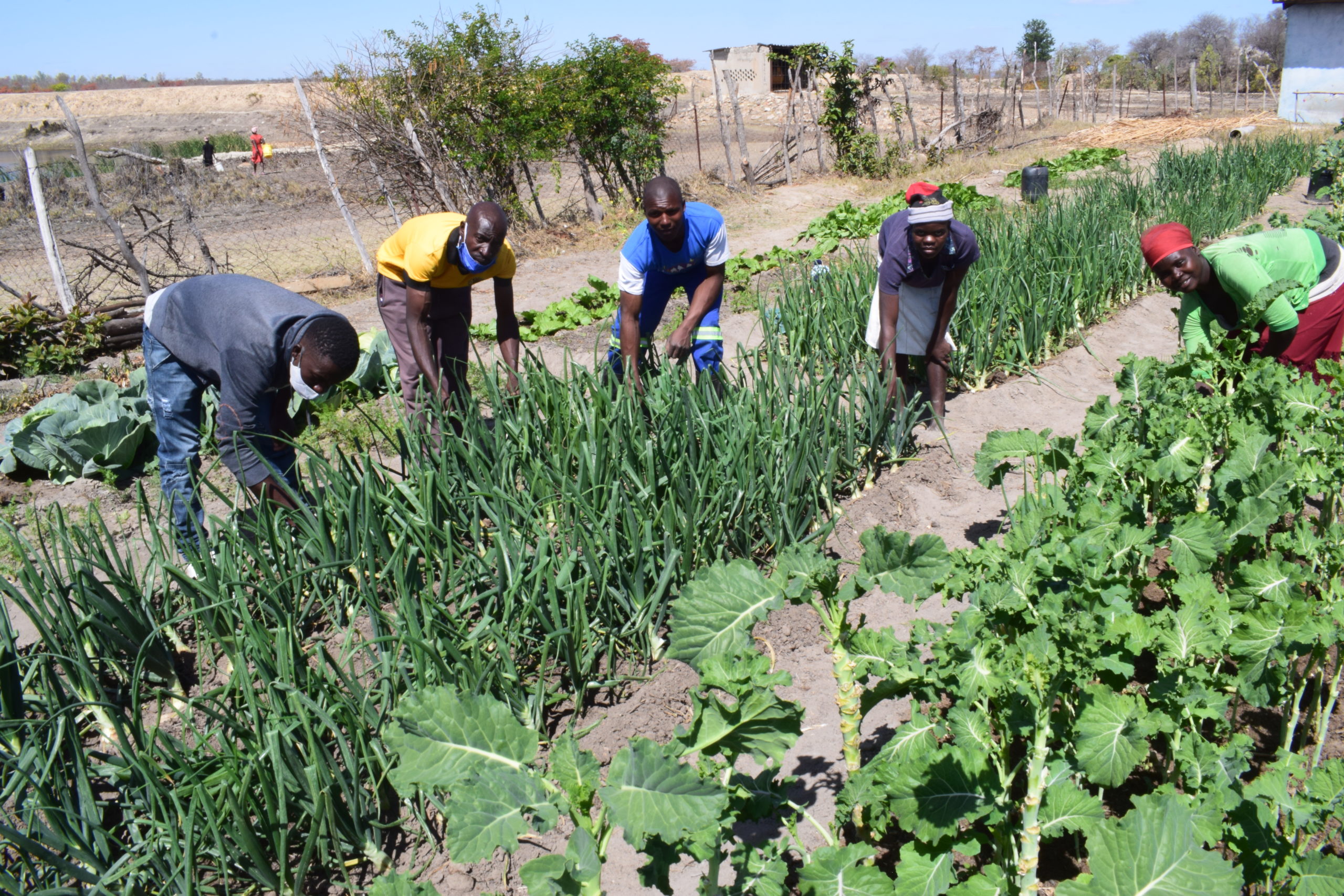What started as a small horticultural youth project last year, is turning into a burgeoning enterprise that has created employment for nine ((9) youth in Ward 14, Shurugwi District.
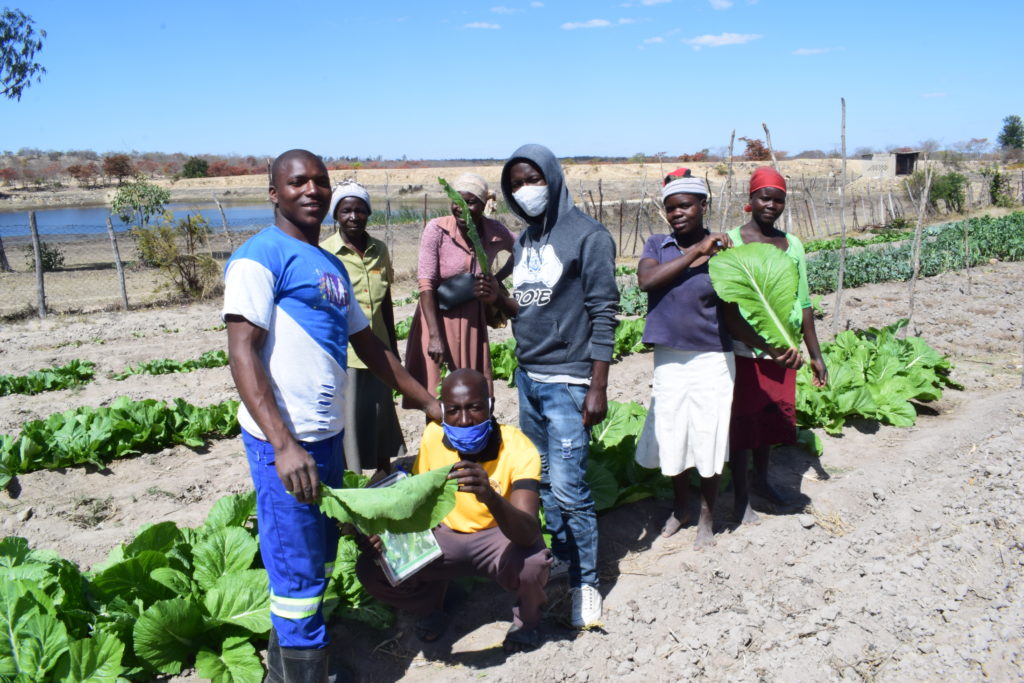
Some of the youth in their garden
The youthful members of Phikelela youth project who previously struggled to get a decent meal and other basic necessities due to economic hardships exacerbated by unemployment now have it easy as their lives have improved significantly with the Help of Hand in Hand Zimbabwe.
When the group was formed in January 2019, they had nothing but a bare patch of land and they had little knowledge on market gardening.
They were however fortunate to cross paths with Hand in Hand Zimbabwe an organisation dedicated on empowering 80 percent of women and youth in rural communities with necessary business skills which enable them to become self-employed and self-sufficient.
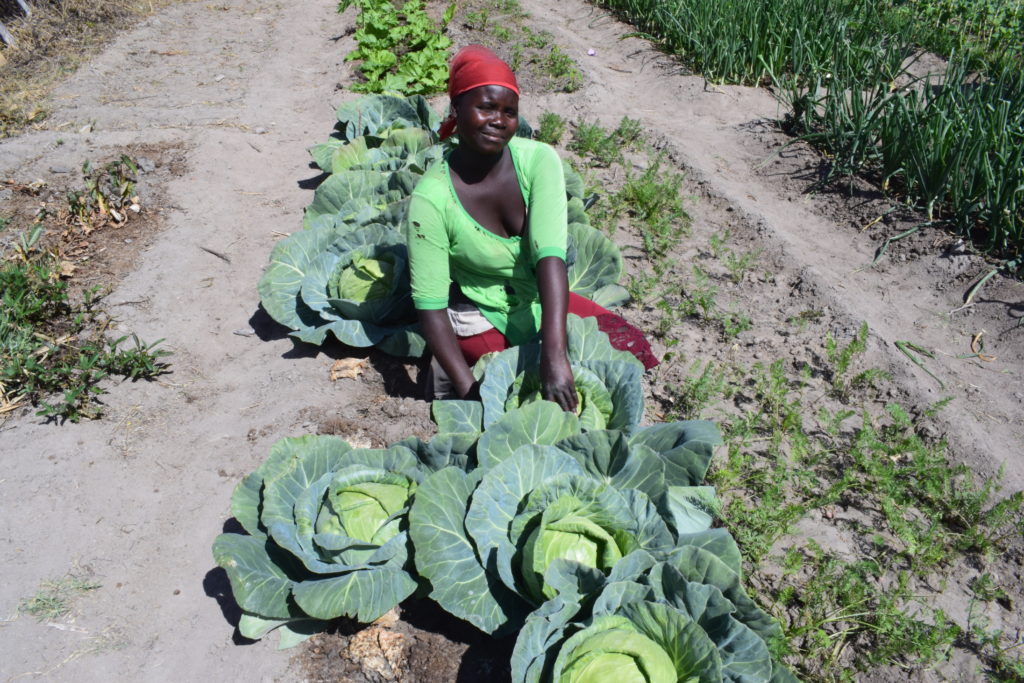
Their horticultural enterprise took off after members received 6 month modular trainings on enterprise development from the organisation.
With this training, as well as look and learn visits in other district wards, the group was able to increase the variety of crops and yield they produce.
The hardworking members were able to grow various crops such as mustard greens, cabbage, spinach, chomolia, tomatoes, carrots and onion.
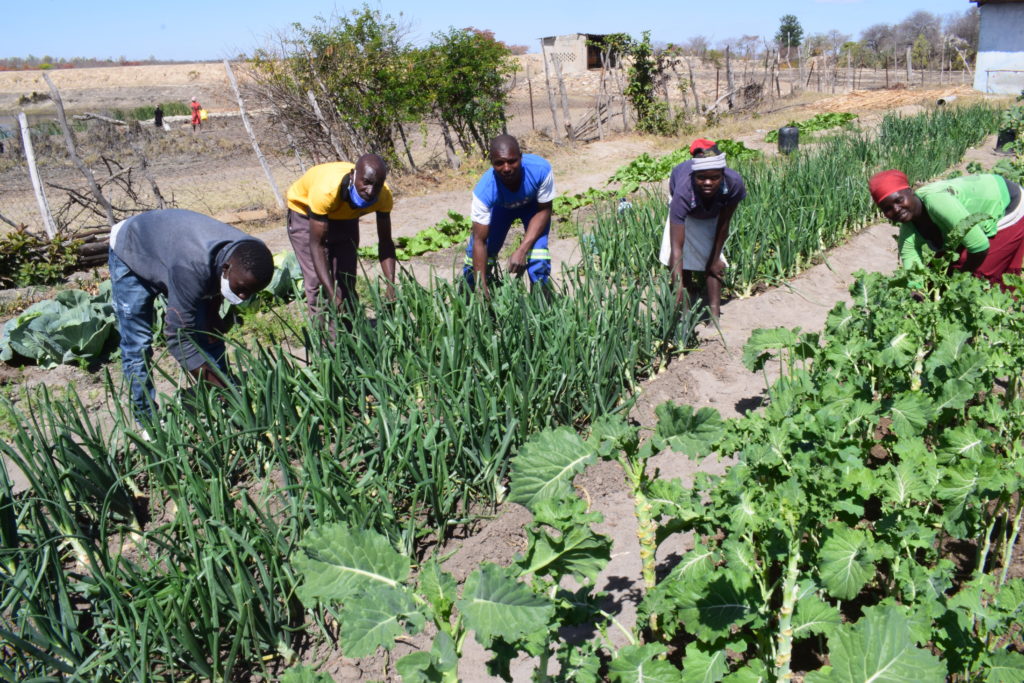
Each group member has 16 rows in the 1,5-hectare garden and can sell crops amounting to as much as USD$27 per month.
22-year-old Mary Mudzingwa a member of the group said she is now financially independent thanks to Hand in Hand Zimbabwe interventions.
“I can now afford to take care of myself and my two (2) year old child, something I never thought I would be able to do before we started the project.
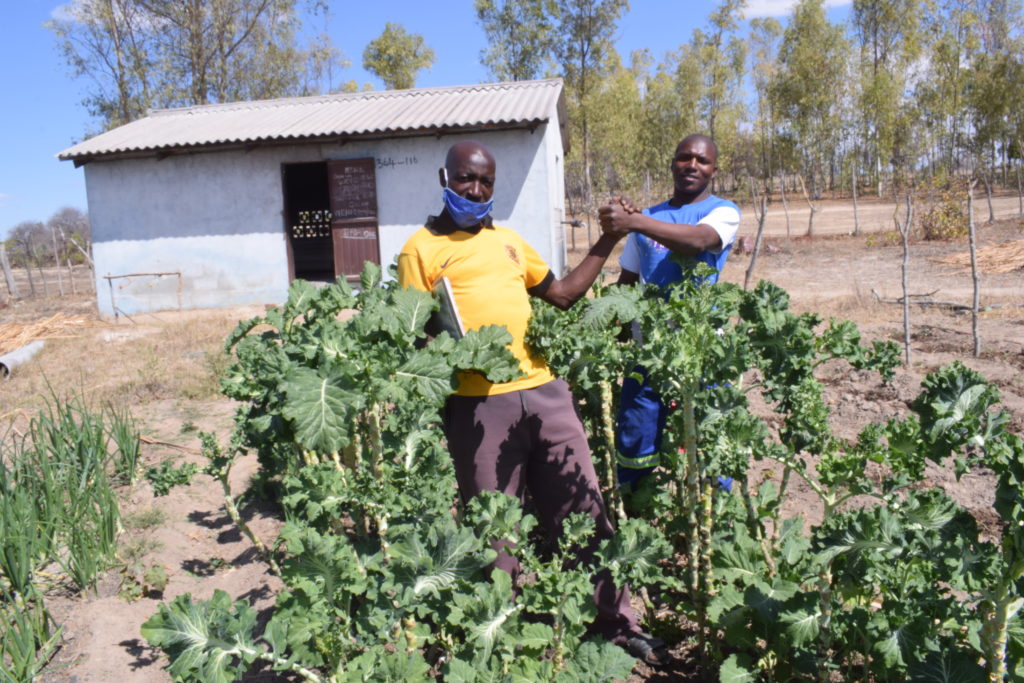
“I now receive a monthly income and I also have the benefit of being able to take some vegetables home.
“Due to the economic decline in the country, we were facing uncertainties regarding our future, as there are limited opportunities for appropriate employment in our district,” she said.
The group is also into the Internal Savings and Lendings (ISALs) scheme and have managed to buy each other 3 goats from the 20 percent interest they received from their annual savings.
Although they sell their produce to the local market, the group hopes to penetrate bigger markets in the long-run.
“We want to grow our business and be a model for other young people in our area,” group member Kudakwashe Magumana said.

